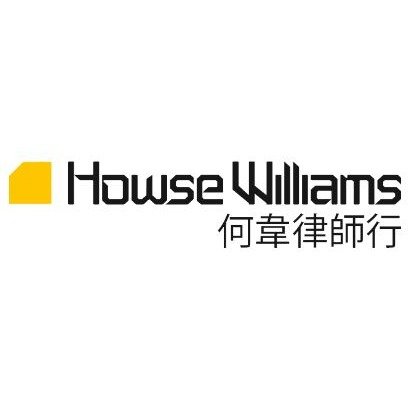Best Land Use & Zoning Lawyers in Hong Kong
Share your needs with us, get contacted by law firms.
Free. Takes 2 min.
Free Guide to Hiring a Real Estate Lawyer
Or refine your search by selecting a city:
List of the best lawyers in Hong Kong
About Land Use & Zoning Law in Hong Kong
Land use and zoning law in Hong Kong are governed by a complex framework that addresses the allocation, design, and regulation of land. The system ensures efficient use of land resources, balances urban development, and protects the environment. Central to this framework is the Town Planning Ordinance, which outlines the procedures for land-use planning, including zoning plans prepared by the Town Planning Board. These laws and policies guide how land can be used, ensuring it meets the needs of both the growing population and economic development goals.
Why You May Need a Lawyer
Engaging a lawyer in land use and zoning matters may become necessary in several situations. These may include disputes over land boundaries, objections or appeals against zoning decisions, compliance with building regulations, application for changes in land use, and issues regarding development rights. Additionally, legal counsel can be crucial when dealing with compulsory land acquisitions or negotiating terms for land leases. Legal professionals provide advocacy and mediation to navigate these complex issues effectively.
Local Laws Overview
Key aspects of the legal landscape in Hong Kong that pertain to land use and zoning include the Town Planning Ordinance, which regulates the development and use of land through statutory plans. The Building Ordinance governs building standards and safety requirements. The Lands Resumption Ordinance provides the government with the right to acquire private land for public use. The Environmental Impact Assessment Ordinance ensures that new developments consider environmental impacts. Understanding these laws is essential for any land development or alteration in zoning in Hong Kong.
Frequently Asked Questions
What is the process for applying for a zoning change?
Applications for zoning changes typically require submission to the Town Planning Board, where they are assessed based on planning principles, environmental impact, and community needs.
Can I oppose a zoning decision?
Yes, stakeholders can submit objections to the Town Planning Board during public consultation periods. These objections must be considered by the Board before finalizing any zoning plans.
What are the penalties for non-compliance with zoning laws?
Non-compliance can result in fines, orders to cease unauthorized land use, or even demolition of unauthorized structures, as determined by relevant authorities.
How is land use categorized?
Land use in Hong Kong is classified into various categories such as residential, commercial, industrial, open space, government, and community facilities, each with specific zoning regulations.
What is the role of the Town Planning Board?
The Town Planning Board is responsible for preparing statutory plans, reviewing development proposals, considering public submissions, and ensuring the plans align with sustainable development principles.
How can I check current land use zoning for a property?
Zoning information can be accessed through the Hong Kong Planning Authority’s official website or by directly contacting the Planning Department for detailed maps and guidelines.
What is ‘land resumption’?
Land resumption is a process where the government acquires private land for public projects like infrastructure, urban renewal, or housing developments, usually involving compensation to the landowner.
Can I negotiate the terms of a government land lease?
While government land leases come with specified terms, negotiations regarding modification, renewal, or premium adjustments are possible and usually require legal guidance.
What is an outline zoning plan (OZP)?
An OZP is a statutory plan that details the zoning and specific land use for areas within Hong Kong to guide land development in accordance with policy objectives.
What should I consider before purchasing land for development?
Due diligence involving land zoning, environmental restrictions, development potential, legal constraints, and alignment with personal or business goals is crucial before purchasing land.
Additional Resources
For further information and assistance regarding land use and zoning in Hong Kong, the following resources may be useful:
- The Town Planning Board - for details on zoning applications and decisions
- Planning Department - for obtaining statutory plans and zoning information
- Environmental Protection Department - for information on environmental assessments
- Hong Kong Legal Information Institute (HKLII) - for accessing land-related ordinances
Next Steps
If you need legal assistance in matters of land use and zoning, it is advisable to consult with a qualified lawyer who specializes in this area. You may start by researching legal firms or individual lawyers with expertise in Hong Kong's real estate and planning law. Initial consultations can help clarify your legal needs and set a course for handling your particular land use issue. Furthermore, staying informed about public consultation periods for relevant zoning plans enables proactive community engagement and protection of personal or business interests.
Lawzana helps you find the best lawyers and law firms in Hong Kong through a curated and pre-screened list of qualified legal professionals. Our platform offers rankings and detailed profiles of attorneys and law firms, allowing you to compare based on practice areas, including Land Use & Zoning, experience, and client feedback.
Each profile includes a description of the firm's areas of practice, client reviews, team members and partners, year of establishment, spoken languages, office locations, contact information, social media presence, and any published articles or resources. Most firms on our platform speak English and are experienced in both local and international legal matters.
Get a quote from top-rated law firms in Hong Kong — quickly, securely, and without unnecessary hassle.
Disclaimer:
The information provided on this page is for general informational purposes only and does not constitute legal advice. While we strive to ensure the accuracy and relevance of the content, legal information may change over time, and interpretations of the law can vary. You should always consult with a qualified legal professional for advice specific to your situation.
We disclaim all liability for actions taken or not taken based on the content of this page. If you believe any information is incorrect or outdated, please contact us, and we will review and update it where appropriate.
Browse land use & zoning law firms by city in Hong Kong
Refine your search by selecting a city.














